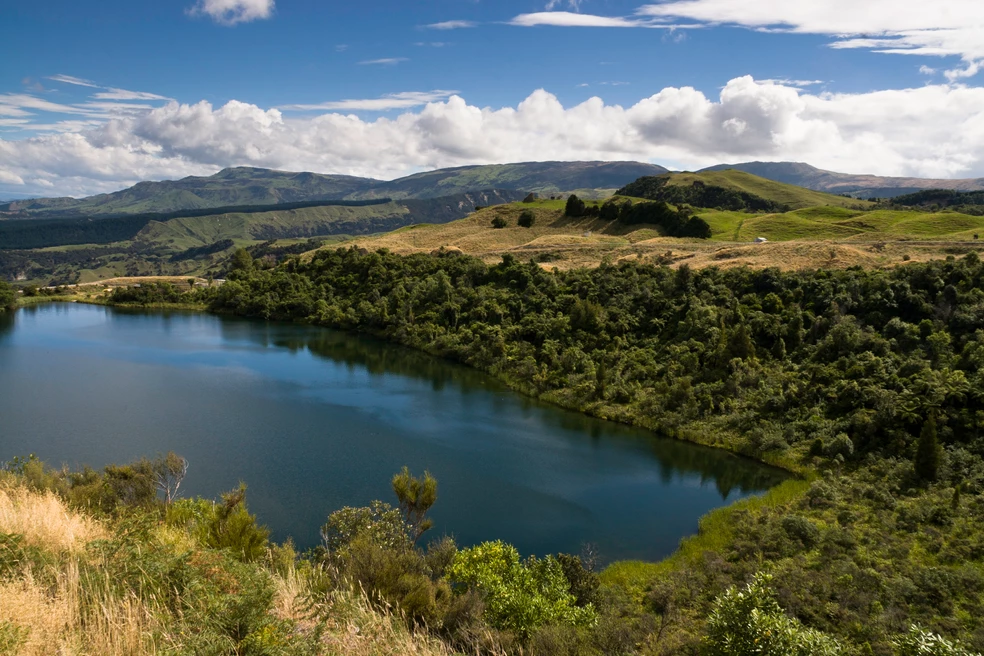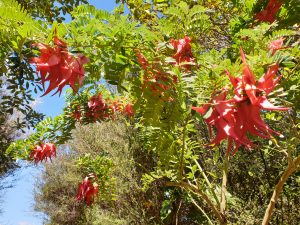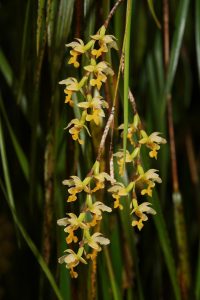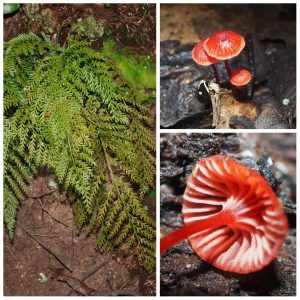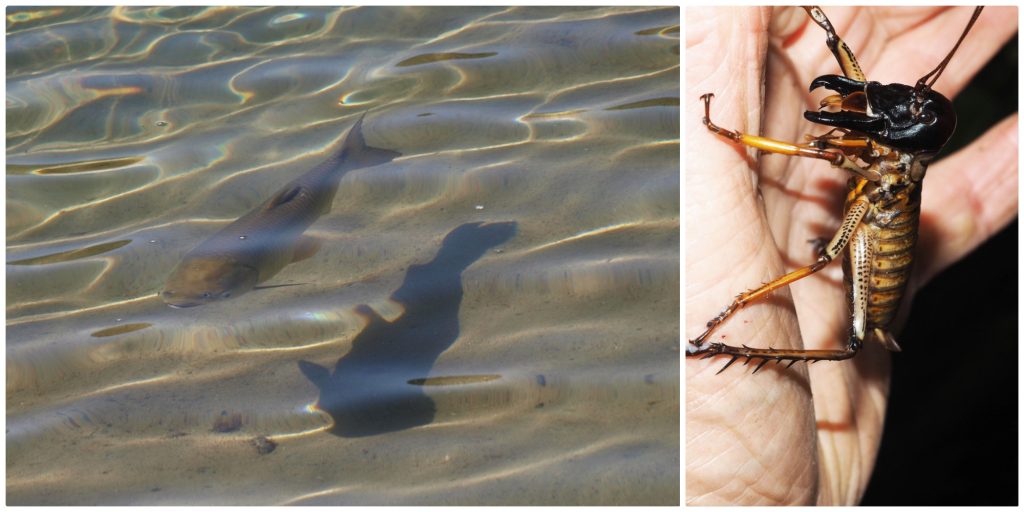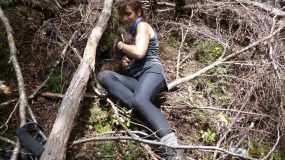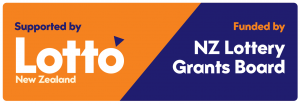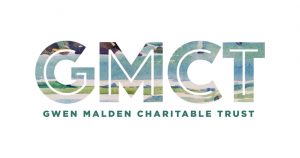When walking on the tracks in the kiwi crèche, there’s a host of other wildlife that you may see – if you look carefully enough. Here’s just a small sample…
Ngutukākā is named for its beautiful red flowers, which hang in clusters of 15-20 blooms and are shaped like a kaka’s beak. So, Ngutu meaning beak/lips and Kākā meaning the native parrot of the same name. Its conservation status is Nationally Critical.
Earina mucronata is an epiphytic (grows on trees) orchid which can be seen in flower at the top end of the lake in late spring.
Ruby Bonnet, a very small but striking fungal fruiting body found growing on wet wood. Underground are vast networks of fungal roots (mycelia) some of which have intimate associations with tree roots. You are likely to see fungi any time of the year.
Asplenium appendiculatum, one of the many ferns to be seen along the track. This species has spores under the fronds but others have specialised spore-bearing fronds.
Auckland Tree Weta, or Hemideina thoracica. Despite the spectacular jaws on the male, it is only barely able to puncture skin, as shown by the two spots next to the weta’s back leg.
Grass carp were introduced to exterminate a very invasive water weed. They cannot breed in Opouahi and will eventually die out. They may be seen in the shallow water a few hundred metres along the track past the jetty.
To learn more about biodiversity, take a look at iNaturalist’s website
Thank you to Mike Lusk for words and pictures on this page.
